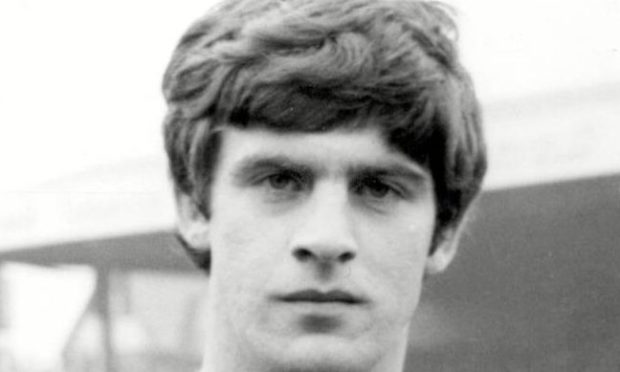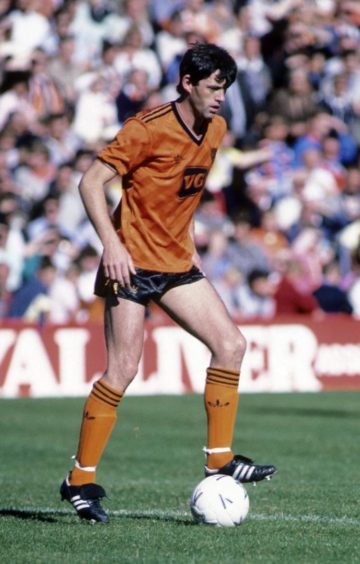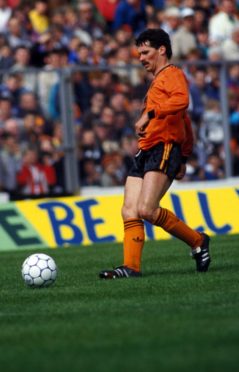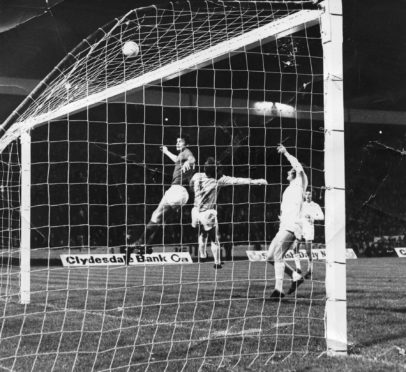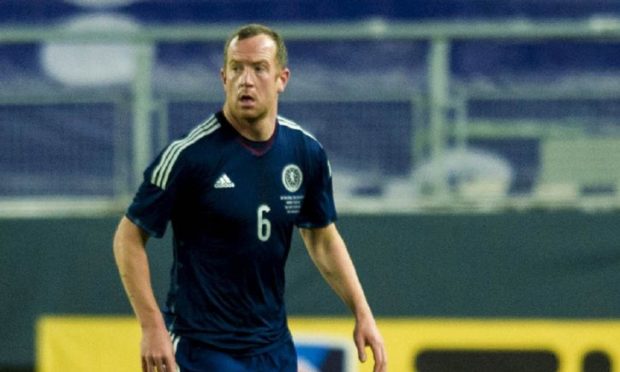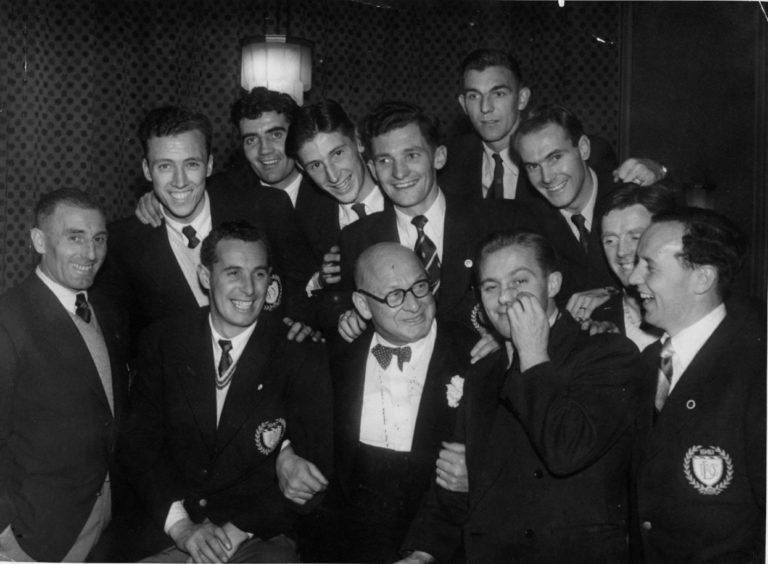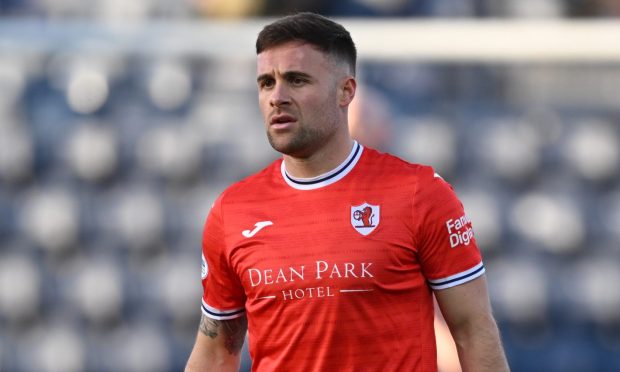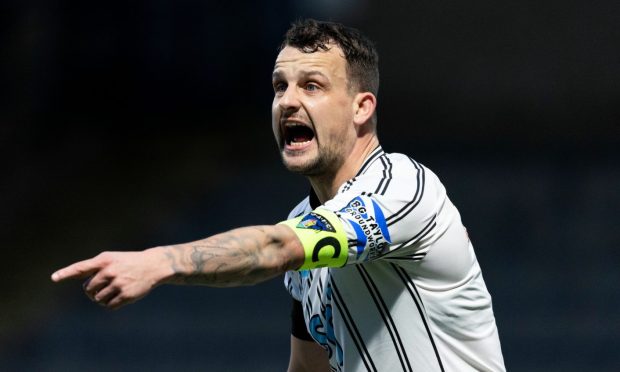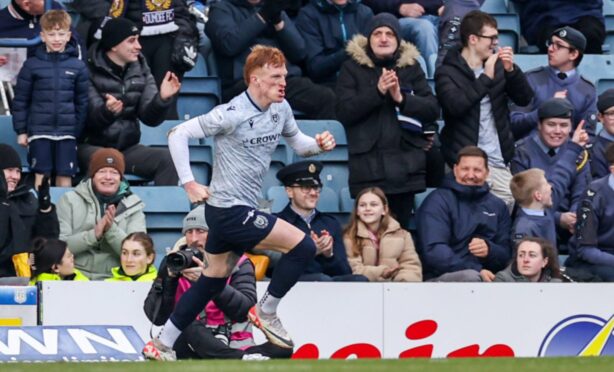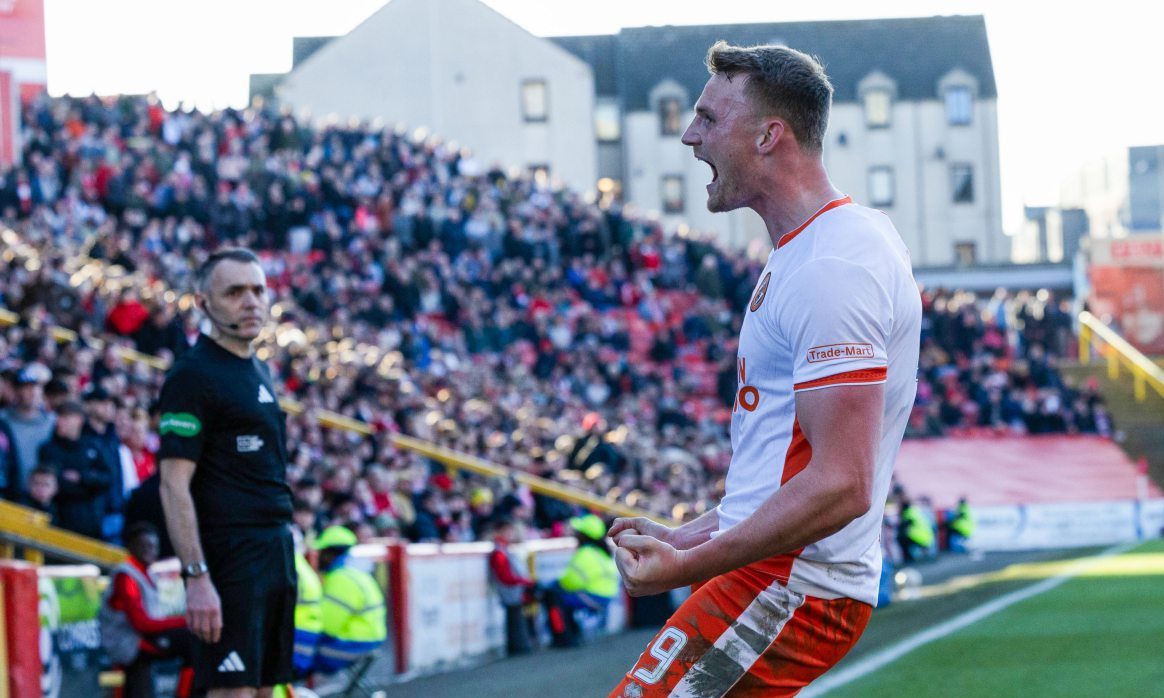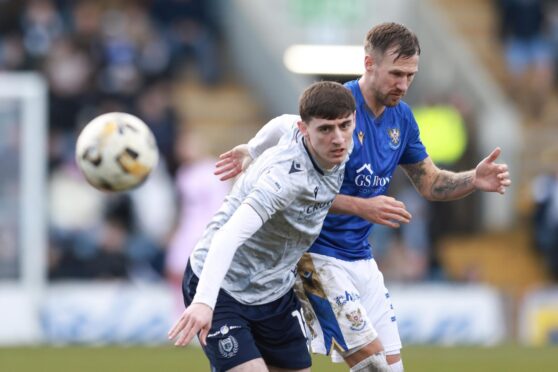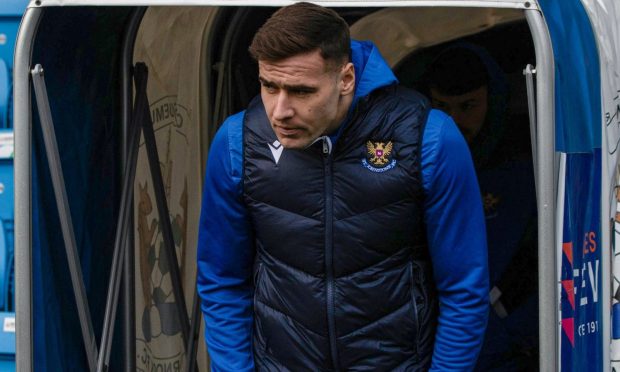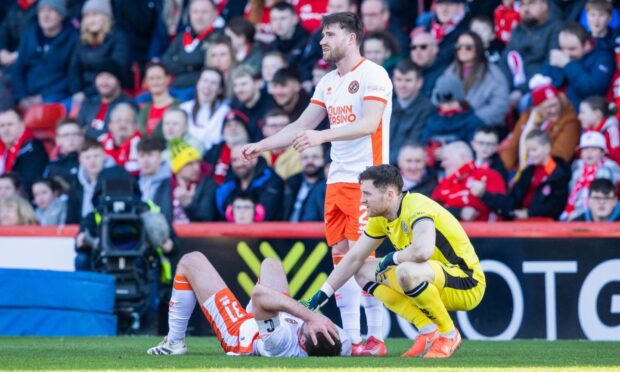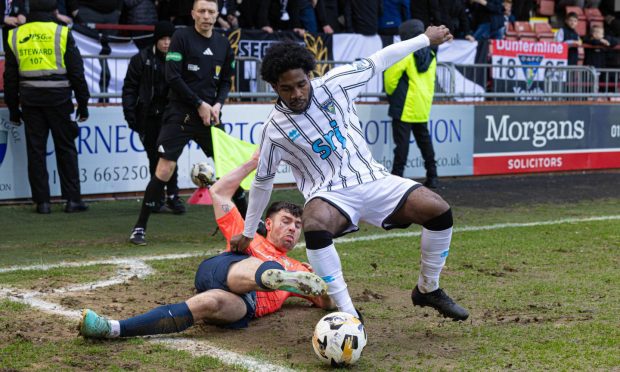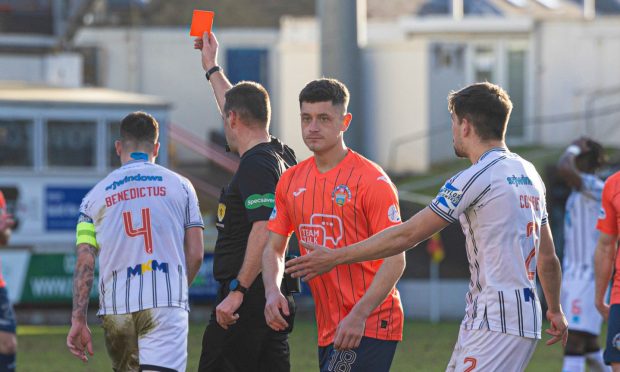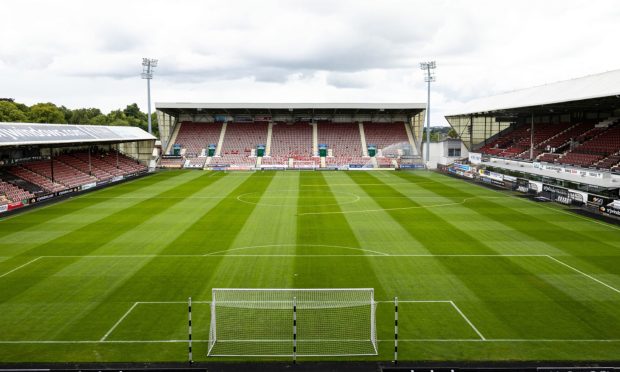With the passing of Leeds legend Peter Lorimer came a collective nod to agree he was one of the greatest players to have been born in Dundee.
Lorimer easily slots into the illustrious Dundonian midfield, with the city proud of him and his achievements even if the glimpses we got of him and his power shooting were mainly confined to Saturday night TV highlights or the times when he graced the Scotland jersey.
City with deep understanding of beautiful game
If there were any “eh kent his faither” moments regarding Lorimer, the words were always spoken to big him up rather than knock him down.
That is no surprise, with this place by the Tay having a deep appreciation and understanding of the beautiful game, as well as a love of “futba” surging through its streets and spinning around its circles.
It is with great sadness, #LUFC has learned of the passing of club legend Peter Lorimer this morning at the age of 74 following a long-term illness
— Leeds United (@LUFC) March 20, 2021
If Lorimer is one of the first names on the team sheet for the GOAT (greatest of all time, for those unfamiliar with the acronym), which other Dundee-born footballers should make it?
What criteria should be used to rate them? Is it a case of comparing olden-day apples with present-day pears?
All you can really do is have a go and await the messages wondering why you left out so-and-so.
Wembley winners
For example, if a Dundonian were to be in the winning FA Cup team at Wembley at the end of this season there would rightly be an immense sense of hometown pride north of the border.
How many of us, though, know that one of our own, Archie Taylor, collected two FA Cup winners’ medals playing full-back for, respectively, Bolton Wanderers in 1904 and Barnsley in 1912?
Outside left Willie Cook, who had two spells at Dundee and also appeared for Dundee United, spent most of his successful career with Bolton. He lifted the FA Cup in 1929 as well as playing three times for Scotland.
Then there is Dundonian centre forward John Anderson, who scored one of Portsmouth’s goals as they beat Wolves 4-1 in the 1939 FA Cup final.
Another of the city’s sons, right half Ewan Fenton, starred for Blackpool in no less than the famous 1953 final, which they won 4-3 against Bolton in front of 100,000 spectators.
Ewan Fenton of Blackpool, Dave Hickson of Everton pic.twitter.com/UEi77i31BI
— The League Magazine (@Theleaguemag) March 15, 2018
The match was to be named the “Matthews Final” in tribute to the great Sir Stanley.
Despite Lorimer staying a weel-kent face in the city, it is more difficult to be remembered if you have ventured south.
Magical Munro
Take the example of Frannie Munro.
He joined Chelsea as a youngster but came back to Dundee United in his home town still aged just 16. He quickly became a regular at just 17 and played in one of the club’s most famous matches – the 5-0 win over Dundee, aka the Dens Park Massacre.
Yet, how many Dundonians would be surprised to learn that Munro played in the very first Uefa Cup final (renamed from the Fairs Cup) in 1972?
His team Wolves lost 3-2 on aggregate to fellow English side Tottenham Hotspur. Munro, by then a centre-back, had done his bit to get the Molineaux club there, scoring in both legs of the semi-final against Hungarian team Ferencvaros.
Munro would also go on to lift the 1974 League Cup with Wolves thanks to victory over Manchester City and was capped nine times by Scotland.
I guess it is just easier to recall and reminisce about those who are or were on your doorstep.
With that in mind, here is a Dundonian XI (4-4-1-1) of which the city can be proud.
The players’ given clubs are the ones deemed to have been where they shone the brightest.
Narey No 1
The greatest of all time and captain: Dave Narey (Dundee United).
Goalkeeper: Sandy Davie (Dundee United).
Defence: John Holt (Dundee United), Narey, Frannie Munro (Wolves), Bobby Cox (Dundee).
Midfield: Peter Lorimer (Leeds United), Jimmy Gabriel (Everton), Alfie Boyd (Dundee), Charlie Adam (Liverpool).
Midfield/forward: Ralph Milne (Dundee United).
Forward: Derek Johnstone (Rangers).
Already names crop up that seem impossible to leave out. It all, of course, comes down to personal choice and opinion.
United fans will shout for Graeme Payne, Davie Dodds and even Scottish Cup hero Craig Brewster.
Dundee supporters will ask, with justification, where Cammy Fraser, John Duncan and Gordon Wallace are.
There is no place, either, for Christian Dailly or Stephen Glass despite having played in England’s top flight; no Iain Phillip despite League Cup medals with both city sides; and the aforementioned golden oldies who walked up the Wembley steps as winners don’t make it.
The truth is there has been too much talent, a surplus of stardust and a barrowload of brilliance.
Narey is number one because he could have played for any top club in England, Italy, Germany or Spain and would not have looked out of place.
He famously scored against Brazil for Scotland in the World Cup in Spain in 1982 but almost as noteworthy was how he matched the Brazilians for technique.
The finest footballer of the remarkable Jim McLean era, Narey spent 21 seasons as a United first-choice, making 866 starts and winning two League Cups with the Tangerines as well as the Scottish Premier League title in 1983.
He also famously was named man of the match when Raith Rovers beat Celtic in the Coca-Cola Cup final in 94.
Boyd is a Dens legend and captained Dundee to two consecutive League Cup wins in 1951 and 52, while Gabriel played 256 times for an Everton side that won the English league title in 1963 and the FA Cup in 66.
Johnstone collected no fewer than 14 major honours with Rangers, including a European Cup Winners’ Cup medal in 72 while playing – aged just 18 – at the back for the Ibrox team against Dynamo Moscow in the Nou Camp.
The good news is that there will be more dynamic Dundonians on the way, ready to represent a grateful city just as Lorimer and the rest did with such grace and style.
